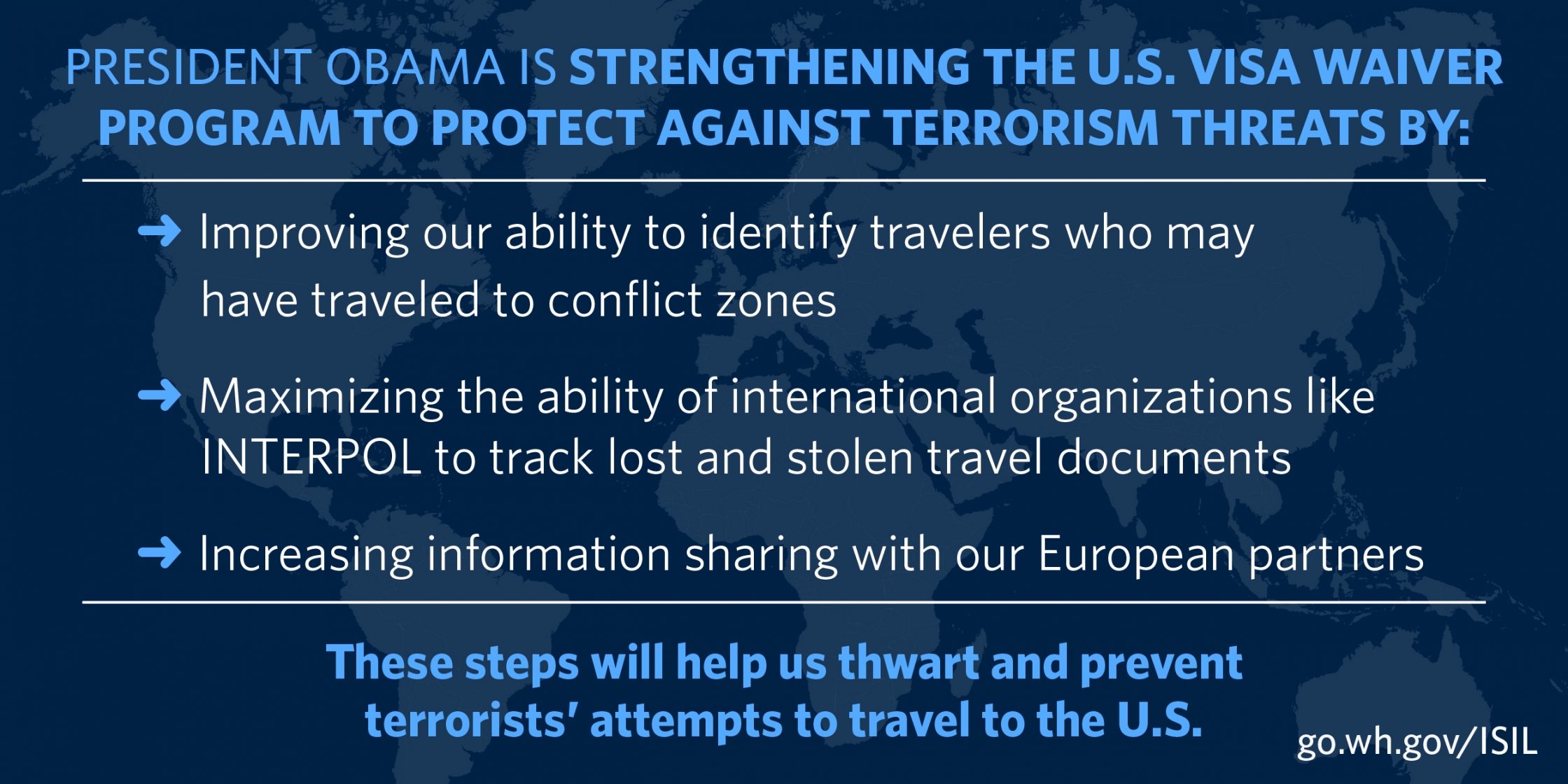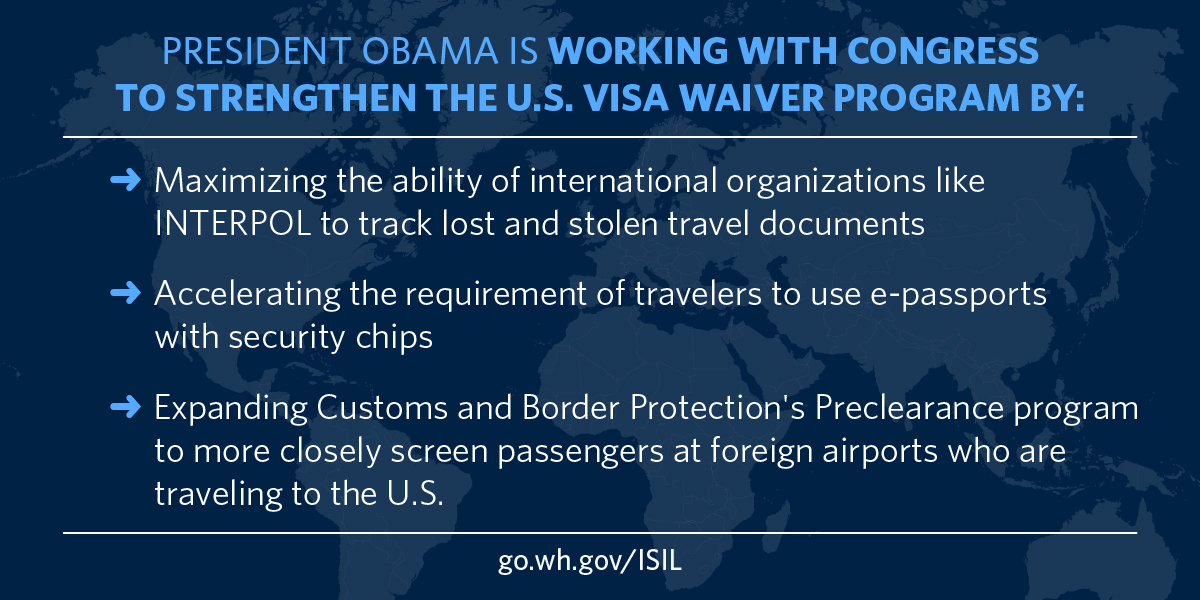
There is no greater priority a president has than keeping the American people safe. In the 21st century, when America still stands as the number one destination for tourists and travelers on international business, that responsibility requires that we can preserve the international connections that are critical to the strength of our economy while protecting our national security.
That's why the President is focused on strengthening the U.S. Visa Waiver Program (VWP), a program that permits visa-free travel for 20 million visitors per year to the United States for citizens of 38 partner countries around the world. These countries are home to citizens who regularly travel to do business or vacation in the U.S.
To ensure that terrorists, serious criminals, and other potentially dangerous individuals cannot reach the U.S. through this program, the VWP utilizes a layered system of security, including comprehensive screening of travelers prior to departure, at various points throughout their journey, and upon arrival at U.S. entry points.
But the President isn't taking chances. That's why, over the past year, the Administration has taken a series of steps to enhance the significant security measures in the VWP. And in the wake of the attacks in Paris, we announced additional actions this week to further improve and accelerate those changes.
So here's everything you need to know about the Visa Waiver Program and what we're doing to enhance its security.
Here's how the Visa Waiver Program works:
If a traveler from a VWP partner country wants to come to the U.S., they must first undergo a counterterrorism screening through the Department of Homeland Security’s Electronic System of Travel Authorization (ESTA), a program that draws on information from U.S. law enforcement and intelligence agencies by which DHS officials decide if the traveler poses any law enforcement or security risks. These individual checks are on top of the rigorous requirements countries must meet to participate in the program. If the traveler fails to earn DHS approval, he or she cannot travel to the U.S. and must appear in person for a visa interview before they can be considered for travel authorization.
Any traveler that is not a citizen of one of the 38 partner countries cannot use the VWP program. Even if someone resides in the country or is in possession of refugee travel documents issued by one of those countries, they cannot use the VWP program to travel to the U.S.
Here’s what the Administration has done over the past year to strengthen the Visa Waiver Program:
Working with the State Department and other security partners, DHS continuously works to adapt the VWP program to current and emerging threats. This work has resulted in significant enhancements, including new data fields in the ESTA application and new traveler screening and information-sharing requirements that specifically address the threat posed by foreign terrorists.
These security enhancements are part of our continuing assessments of U.S. security in the face of changing threats and challenges, and our determination to stay one step ahead. You can read more about our recently enhanced security measures here.
Here are the new improvements the President announced today:
In light of the terrorist attacks in Paris and the ongoing threat posed by foreign terrorist fighters, the Administration has taken new steps to strengthen the VWP even further and bolster our relationships with the 38 countries by immediately taking the following steps:

These steps include modifying ESTA to capture information from VWP travelers regarding any past travel to countries constituting a terrorist safe haven, identifying possible pilot programs to assess the collection and use of biometric data (like fingerprints or photographs), improving terrorism information-sharing between countries, working with Congress to increase the penalty for airlines that fail to verify a traveler’s passport data from $5,000 to $50,000, and much more. You can read a full run-down of the new steps we’re taking here.
Here is what Congress can do to help:
The Administration has been talking to Senators from both parties for weeks about technical improvements to our visa waiver program that would enhance our national security without undermining key relationships that help our economy:

For more details on what legislation to improve the WVP should include, click here.
The United States has always been and will continue to be a place where the people of the world come together. The Administration will continue to make it possible for people to visit our country in a safe and responsible way. The Visa Waiver Program does just that, and we will continue make it the most comprehensive program for our security.
Amy Pope is Deputy Assistant to the President for Homeland Security

